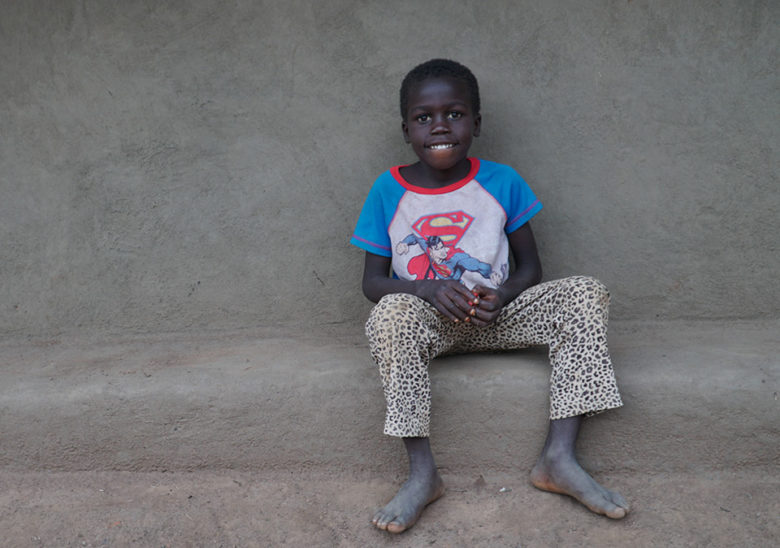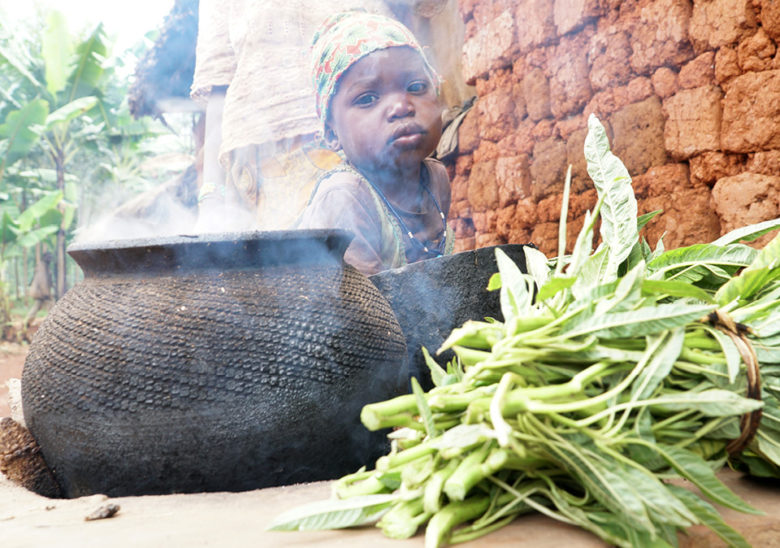The sponsor changes the world more than you can imagine

The sponsorship is a peek into different cultures and an opportunity to change the world from your home sofa. However, few know that the sponsorship has changed over the years and the sponsor is helping a lot more today than before.
Picture of a child on the refrigerator door, drawings, letters, and news. The sponsorship is a peek into different cultures and an opportunity to change the world from your home sofa.
However, few know that the sponsorship has changed over the years and the sponsor is helping a lot more today than before. Many think that acting as a sponsor for a child living in a developing country means that the sponsor pays the child’s school fees and supports him or her individually. This has been done in the past, but nowadays, sponsorship means much more.
In addition to sponsored children, the sponsors of the Mission and Development Organization Fida also help children’s families and the entire community. This will prevent inequalities within the community.
– When support benefits the family and the community as a whole, parents learn to take care of their children themselves. This has been found to be the best way to empower parents, says Sina Urmas, Fida’s expert in diaconal work.
When a child has the opportunity to go to school, at the same time the risks of ending up in child marriage or other forms of abuse are reduced.
Among other things, Fida’s programs help parents to earn a living, enabling them to pay their child’s school fees themselves. When parents take responsibility for their children’s schooling, they also internalize the importance of education. Gradually, the community is finding that investing in children’s education increases the well-being of families and the community.
– In many cultures, children are thought to be more useful to work in the fields and girls end up being married at a young age. For this reason, our sponsorship work provides training for parents and talks are given to community decision-makers about the importance of education and child protection, says Urmas.
At the same time, when a child has the opportunity to go to school, the risks of having to do heavy work and fall victim to child marriage or other exploitation are reduced. For many children, the love shown by their sponsors is also a model for their own lives: they want to help others because they have been helped.
The help of the sponsors is concretely shown in the street scene
The support of the sponsors is of enormous importance, although the monthly amount of support from an individual sponsor may seem small. Donations from committed sponsors will concretely provide better living conditions and hope for the future for the residents of the supported communities.
– When work was being launched in Cambodia in a new community, the situation at that site was compared with the situation in the community in which the work had been carried out for several years. The difference between these communities was like night and day. In addition to the well-being of the children, the results of the support were visible throughout the community, even in the tidiness of the street scene, describes Anna-Liisa Liljefors, head of Fida’s sponsor communication.
With the support of Fida’s sponsors, children have access to preschool, school and children’s clubs, as well as health care. In addition, depending on the needs of the community, vocational and literacy training as well as nutrition and hygiene training will be provided. In many communities, savings loan groups are organized for parents. Schools, water points and toilets are built in communities, and the well-being of the community and its ability to help itself will be strengthened.
Help is given through churches
A key principle in the work supported by Fida’s sponsors is that we work with local partners. They are familiar with the conditions and culture of their area, which is an important resource and key to the effectiveness of the work. Staff are looking for the community and children most in need in the area where work will begin. The goal of child sponsorship work is to break the cycle of poverty that has often lasted for many generations.
As a Christian mission and development organization, Fida’s local partners are mainly churches, their employees, and volunteers. Christianity is also reflected in the fact that Fida encourages sponsors to pray for sponsored children and all activities.
Due to the Corona pandemic, the schooling of many children has been completely cut off. At the same time, the use of child labor and child marriages have increased around the world. Sponsors are needed more than ever.
Fida’s child sponsorship works in 14 countries, in a total of 21 locations. Two newsletters from the aid target area are sent to the sponsors twice a year. In addition, general community news is sent via email.
– Through Fida, it is still possible to have your own sponsored child, whose life the sponsor can follow through letters, drawings and photographs. Another option is to join a community sponsorship, in which case the sponsor does not have a designated one child, but he or she gets to follow the lives of the children in the community more broadly, Anna-Liisa Liljefors explains.
Due to the corona pandemic, the schooling of many children has been completely cut off. At the same time, the use of child labor and child marriages have increased around the world. Sponsors are needed more than ever.
Currently, Fida has the greatest need for new sponsors in Kenya, Uganda and Nepal. You can join Fida’s sponsors at www.tulekummiksi.fi. (In Canada and USA: www.fida.info/en/become-a-sponsor/)

Before, we only ate once a day, and I was always hungry. Then we got involved in the work supported by the sponsors. My mother was educated about sustainable farming and different ways to earn a living. She joined a savings group. Now our harvest has increased. Our food situation is better. Before, my dad didn’t want me to go to school. His thoughts about going to school have changed, and now I’m in school too.” – Claudine, student in Burundi
